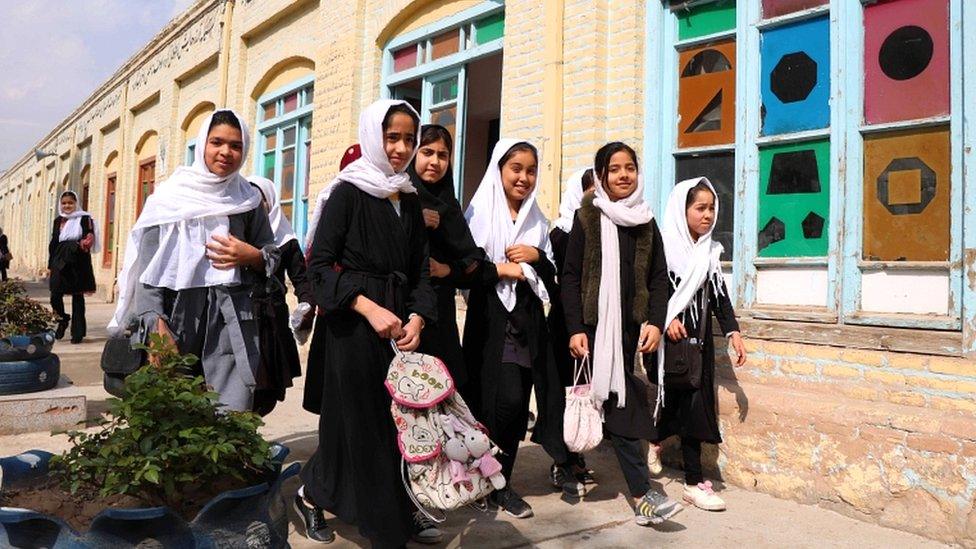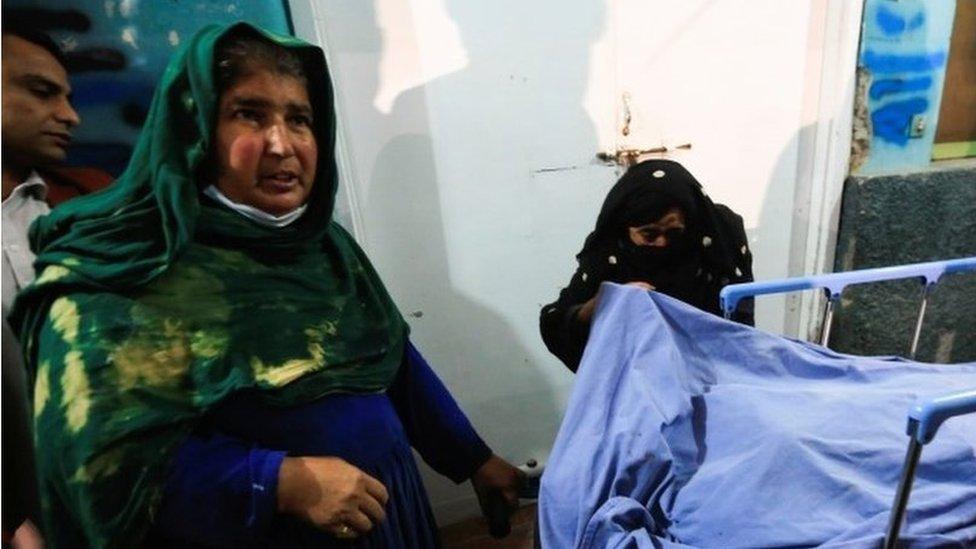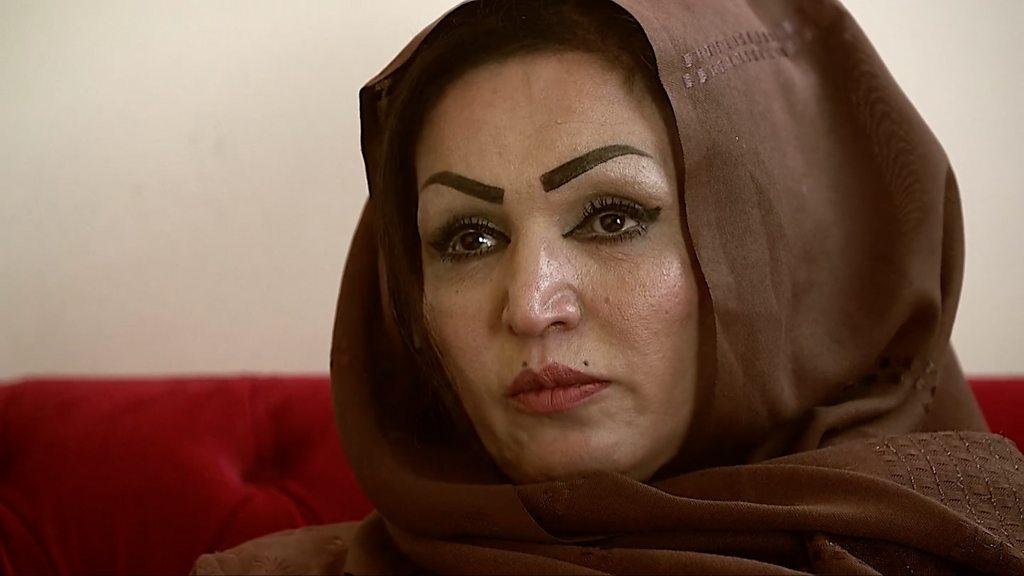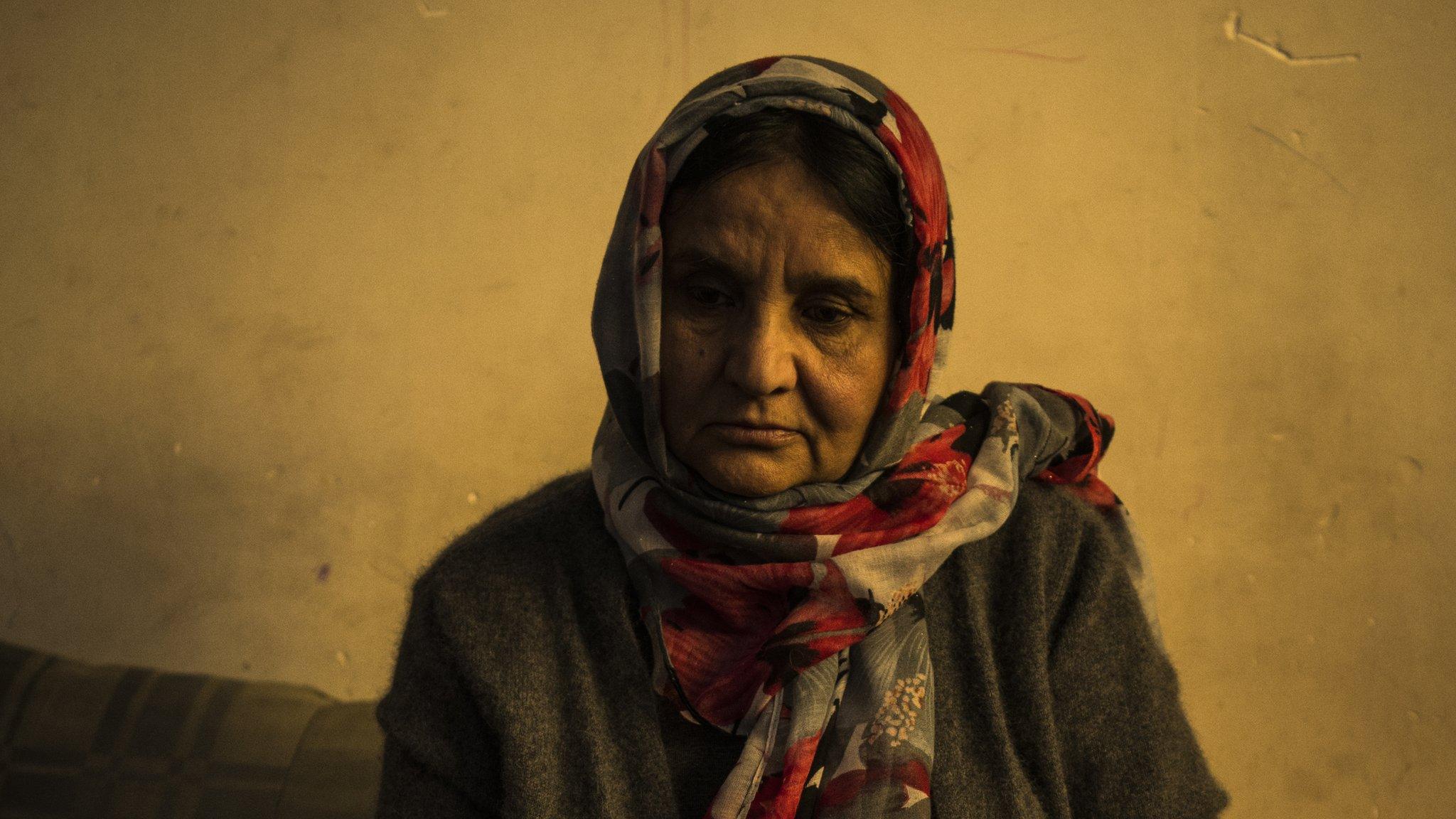Afghanistan investigates ban on girls' singing
- Published

The ban on older girls singing in public sparked criticism on social media
The Afghan education ministry says it is investigating a recent statement from the director of education in the capital, Kabul, which banned girls older than 12 from singing in public.
The ban was widely criticised on social media. Girls shared clips of themselves singing using the hashtag #IAmMySong.
The row comes amid concerns about consequences of a possible peace deal with the Taliban.
Under the Taliban, girls were denied an education and most music was banned.
The Kabul statement banned girls 12 years and older from singing at school functions, and also banned older girls from having male music teachers.
The education ministry says it does not reflect its own position. It says it will assess it and may take disciplinary action.
The ban, announced several days ago, sparked criticism on social media, with literary figures and campaigners saying it was a backward step in educational rights.
"Forgive us God, human beings can be so cruel that they see even a child from a gender-based perspective," tweeted author and poet Shafiqa Khpalwak, one of the country's best known female writers.
Some women compared it to life under the Taliban - who were ousted in 2001 - when girls were banned from going to school and most music was forbidden.
"This is Talibanisation from inside the republic," Sima Samar, an Afghan human rights activist of nearly 40 years, is quoted as saying by the Associated Press (AP) news agency.
"I survived an assassination attempt by the Taliban": Afghan film director and actor Saba Sahar
The Afghan government is currently under pressure to forge a peace deal with the Taliban, and although many Afghan women want an end to the violence, they are worried about their future rights, correspondents say.
Related topics
- Published10 March 2021

- Published3 March 2021

- Published1 February 2021

- Published28 February 2021
